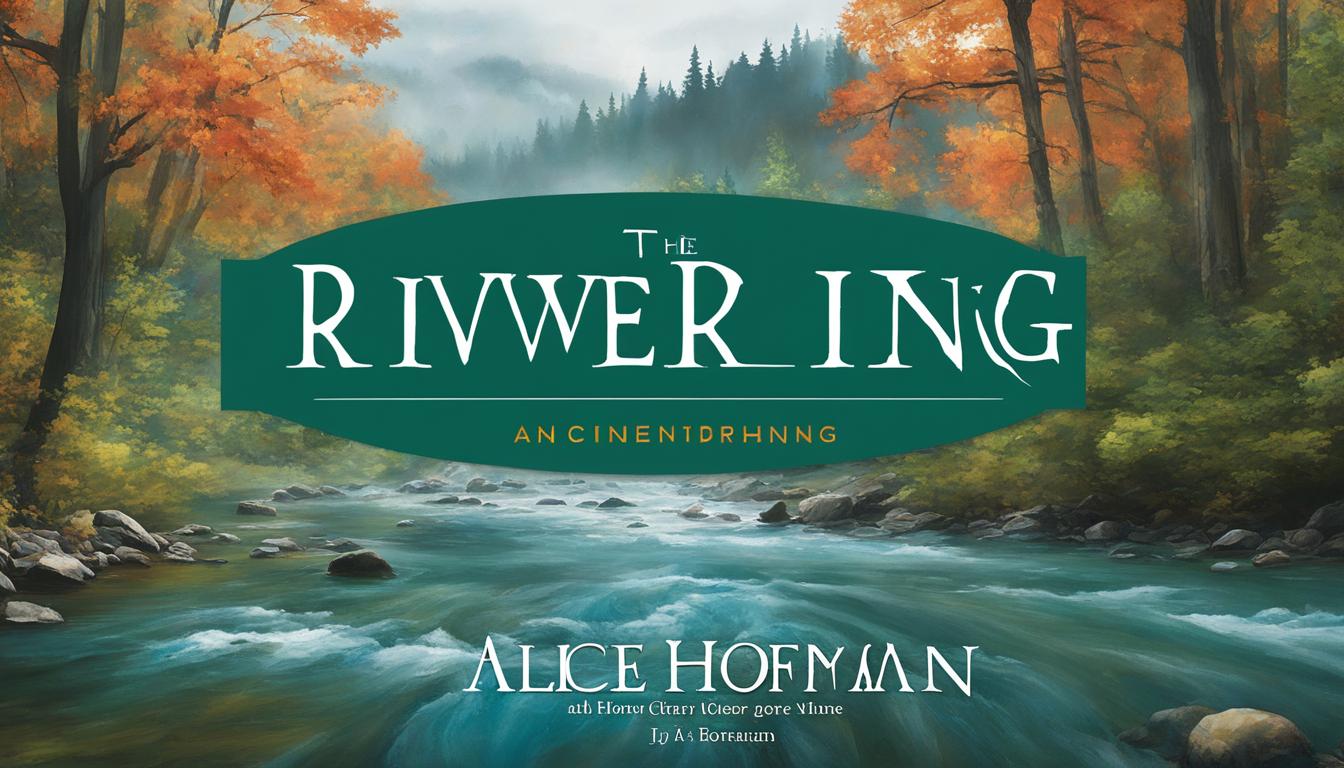In this audiobook review, we delve into the mystical and enchanting world of The River King by Alice Hoffman. Known for her captivating storytelling, Hoffman weaves together a tale of love, loss, and the power of nature that will leave listeners on the edge of their seats.
Key Takeaways
- Alice Hoffman’s The River King is a must-read for lovers of mystical and atmospheric storytelling.
- The development of characters adds depth and complexity to the story.
- The use of symbolism and narrative techniques enhances the overall reading experience.
- The audiobook narration and performance enhance the storytelling experience.
- The River King has received critical acclaim and recognition within the literary community.
About the Author – Alice Hoffman
Alice Hoffman is a prolific American author with a passion for magical realism and historical fiction. Born in New York City in 1952, she grew up on Long Island and earned a degree in English from Adelphi University. While working as a copywriter, Hoffman began writing novels in her spare time, eventually leaving her job to pursue writing full-time.
Hoffman has written over 30 novels and has been praised for her unique style and ability to weave together elements of fantasy and reality. Her works have been translated into more than 20 languages and have been adapted for film and television.
Hoffman’s Writing Style
Hoffman is known for her lyrical prose and vivid descriptions that transport readers to other worlds. Her books often explore themes of love, loss, and the power of nature. Hoffman’s writing style is exemplified in her novel “The River King,” which seamlessly blends realism and mysticism to create a captivating reading experience.
“The River King” and Hoffman’s Literary Career
“The River King” was first published in 2000 and is one of Hoffman’s most notable works. The novel was a critical and commercial success, garnering praise for its atmospheric setting and complex characters. It is a testament to Hoffman’s talent for crafting stories that stay with readers long after they have finished reading.
Plot Summary of “The River King”

Enter the magical world of “The River King” with a brief summary of the plot that highlights the book’s central themes and characters.
“The River King” revolves around the mysterious suicide of a student named Aesop, found dead in the Haddan School’s river. As the story unfolds, characters attempt to come to terms with the truth behind Aesop’s death, with intersecting relationships and secrets that blur the line between truth and fiction.
The novel is a captivating blend of mystery, romance, and coming-of-age elements, with characters on a journey of self-discovery in the midst of a town with a dark history. Along the way, the reader encounters the power of nature, exploring how it influences the town’s residents and shapes their decisions.
The plot’s pivotal point occurs when Carlin Leander, a student at Haddan School, discovers the truth behind Aesop’s death. This discovery forces several characters to face the consequences of their actions and question the legacy they want to leave behind.
| Name | Description |
|---|---|
| Alice Hoffman | The author of “The River King” and a renowned American writer known for her captivating storytelling. |
| Aesop | A Haddan School student whose mysterious suicide forms the central plot of the novel. |
| Carlin Leander | A Haddan School student who discovers the truth behind Aesop’s death and confronts several characters with their actions. |
Through “The River King,” Hoffman weaves a tale of love, loss, and the intricate human connections that shape our lives. This book promises a mystical journey, leaving the reader with a sense of wonder and enlightenment.
Setting and Atmosphere
Step into the mystical world of “The River King,” where Alice Hoffman’s masterful storytelling comes alive through vivid descriptions and a carefully crafted setting. The novel’s atmospheric ambiance draws readers in, enveloping them in a world where the river reigns supreme.
Hoffman’s attention to detail and use of sensory language allows readers to fully immerse themselves in the story’s setting. From the smell of the river to the rustling leaves, every element is carefully considered, enhancing the reading experience and creating a thoroughly captivating atmosphere. One can easily become lost in the pages of “The River King,” transported to a world where beauty and disaster coexist.
The river, which is a central theme throughout the novel, takes on a life of its own, serving as a metaphor for life and death, power and vulnerability. As the story unfolds, readers are pulled deeper into its depths, with every twist and turn adding to the already charged atmosphere. Hoffman’s masterful handling of setting and ambiance sets the stage for a truly gripping tale.
Character Development

One of the most compelling aspects of “The River King” is the intricate development of its characters. From the enigmatic Arden and the driven Carlin to the troubled Gus and the conflicted Betsy Chase, each character goes through significant personal growth and transformation.
Arden is initially presented as an enigmatic and alluring figure, but as the story progresses, we witness her vulnerability and inner demons, understanding the root of her seemingly erratic behavior.
Carlin’s intense ambition to succeed and impress his father motivates much of his actions throughout the book, but as he faces his own insecurities and confronts his past, he finds a sense of renewed purpose.
Gus, the outcast and scapegoat, struggles with the weight of parental expectations and his own sense of identity, finding solace in unexpected places.
And Betsy Chase, haunted by her own past and burdened by secrets, confronts her demons head-on, eventually finding a way to reconcile with her past and move forward.
Through these characters’ motivations, relationships, and personal growth, Hoffman skillfully portrays a range of complex individuals, each with their own unique struggles and triumphs.
Writing Style and Narrative Techniques
Alice Hoffman’s writing style is a unique blend of lyrical prose and vivid descriptions that transport readers to a world of mystery. She employs narrative techniques that keep the reader engaged throughout the story, with the use of symbolism and imagery adding depth and complexity to the plot.
The River King is no exception, with Hoffman’s signature style on full display. Her use of descriptive language paints a vivid picture of the setting, immersing readers in the atmospheric world of Haddan School and its surroundings.
The narrative techniques employed in The River King create a compelling story that keeps readers on the edge of their seats. From the use of multiple perspectives to the clever employment of flashbacks, Hoffman crafts a tale that seamlessly weaves its different elements together.
The Role of Symbolism
Hoffman employs the use of symbolism to add depth to the story, bringing to life the central themes and motifs. The river, for example, is used as a powerful symbol of life and death, representing both the beauty and power of nature.
Hoffman’s use of symbolism also extends to the characters, with their names and actions serving as metaphors for larger societal issues. The character of Carlin Leander, for instance, represents the struggle for individuality within a conformist society.
Lyrical Prose
Hoffman’s writing is characterized by its poetic quality, with lyrical prose that evokes emotion and creates a sensory experience for the reader. Her descriptions of nature, in particular, are breathtakingly beautiful and lend a mystical quality to the story.
The River King is a masterclass in Hoffman’s unique writing style, showcasing her ability to create an immersive and engaging story through the use of narrative techniques and symbolism.
Themes and Symbolism
As with any Hoffman novel, “The River King” is rich in symbolism and thematic depth. The interplay of nature and human experience is a recurring theme, with the river serving as a metaphor for the characters’ emotional journeys.
The power of love and its transformative effects are also explored, as the characters grapple with intertwining relationships and emotional entanglements. Loss and grieving are recurrent themes that permeate the book, as death and tragedy impact the lives of the central characters.
Hoffman’s use of symbolism is pervasive in “The River King.” The river, a seemingly benign setting, emerges as a potent metaphor, reflecting feelings of hope and despair as well as the push and pull of the characters’ subconscious desires. The natural world, the forest, and the creatures that inhabit it all play an integral role in the novel’s deeper meaning and add a layer of transcendentalism to the already enigmatic story.
The author’s skillful use of subtext and imagery adds to the reader’s experience by creating a sense of mystique and depth. Hoffman’s use of symbolism and themes in “The River King” shows that she is not only a master storyteller, but also a workmanlike artist who crafts stories that demand to be read more than once.
Audiobook Narration and Performance
Experiencing “The River King” through the audiobook format can enhance your storytelling experience. This version of the book is narrated by a professional voice actor that brings the characters and setting to life.
The audiobook’s narration and performance showcase the actor’s ability to set the tone of the story and captivate the listener’s attention. The actor’s voice quality and inflections enhance the atmospheric setting, conveying the book’s emotional and mysterious elements.
Furthermore, the narration captures the nuances of each character, making the listener feel like they are part of the story. The actor’s portrayal of the characters’ unique personalities, motivations, and emotions adds an extra layer of depth to the book.
Overall, “The River King” audiobook’s narration and performance enhance the reading experience, providing an immersive and captivating approach to this enchanting tale.
Pacing and Pivotal Moments
One of the strengths of “The River King” is its expert pacing, keeping readers engaged and on the edge of their seats throughout the story. The novel is structured in such a way that there are several pivotal moments that drive the narrative forward and keep readers invested in the outcome.
One such pivotal moment occurs when the body of a student is discovered in the river, leading to an investigation that uncovers shocking secrets and unexpected twists. Another occurs when protagonist Betsy Chase begins to unravel the mystery of the river and its significance to the town.
These moments are expertly woven into the narrative, propelling the plot forward and maintaining the momentum of the story. They keep readers guessing and engaged, enhancing the overall reading experience.
The River King is a masterclass in pacing and storytelling, proving that Alice Hoffman is a true master of her craft.
Reception and Critical Acclaim
Since its publication, “The River King” has received widespread critical acclaim, garnering praise for its intriguing plot, vivid characters, and skillful storytelling. The novel has been described by critics as “spellbinding” and “captivating,” with Hoffman’s lyrical writing style and use of symbolism earning particular praise.
One reviewer from The New York Times noted that “Hoffman’s lush, evocative prose draws readers into the mysteries of her tale,” while another from The Los Angeles Times praised the book’s “spellbinding atmosphere and multidimensional characters.”
In addition to positive reviews, “The River King” has also received several notable awards and accolades. It was named a New York Times Notable Book and a Barnes & Noble Discover Great New Writers Selection, among others.
The River King Reviews Summary
| Publication | Review |
|---|---|
| The New York Times | “Hoffman’s lush, evocative prose draws readers into the mysteries of her tale.” |
| Chicago Tribune | “A captivating novel that explores the intricacies of human relationships and the power of the natural world.” |
| The Los Angeles Times | “Spellbinding atmosphere and multidimensional characters make ‘The River King’ a must-read.” |
Comparison to Other Works by Alice Hoffman
Alice Hoffman is known for her captivating storytelling, and “The River King” is no exception. However, how does it compare to her other works? Let’s take a closer look.
| Similarities | Differences | Unique Qualities | |
|---|---|---|---|
| The Dovekeepers | Both novels feature strong female characters. | “The Dovekeepers” is set in ancient Israel, while “The River King” takes place in a contemporary New England boarding school. | “The Dovekeepers” is a historical fiction, while “The River King” explores mysticism and the power of nature. |
| Practical Magic | Both novels combine magic and romance. | “Practical Magic” focuses on two sisters, while “The River King” has a more diverse cast of characters. | “Practical Magic” has a lighter tone, while “The River King” deals with darker themes like grief and guilt. |
| The Museum of Extraordinary Things | Both novels feature a unique setting. | “The Museum of Extraordinary Things” takes place in Coney Island during the early 1900s, while “The River King” is situated in a contemporary boarding school that borders a river. | “The Museum of Extraordinary Things” explores the concept of otherness, while “The River King” delves into the power of nature and community. |
While each of Alice Hoffman’s works has its own unique qualities, “The River King” stands out for its mystical atmosphere, complex characters, and skillful writing style. The novel’s exploration of guilt, grief, and the power of nature sets it apart from Hoffman’s other works, making it a must-read for fans of the author and newcomers alike.
Conclusion
After a comprehensive analysis of “The River King” by Alice Hoffman, it’s clear that this novel is a masterful work of storytelling that captures the reader’s attention from start to finish. The atmospheric setting and enchanting characters draw readers in, while Hoffman’s unique writing style and clever use of narrative techniques keep them engaged and eager for more.
Furthermore, the audiobook narration and performance only enhance the overall experience, allowing readers to fully immerse themselves in the story. It’s no surprise that “The River King” has received critical acclaim and solidified Alice Hoffman’s reputation as a skilled author.
Overall, “The River King” is a must-read for anyone who enjoys mystery, romance, and literary fiction. Its themes of love, loss, and the power of nature are timeless and relatable, making it a book that will stay with readers long after they’ve turned the final page.



